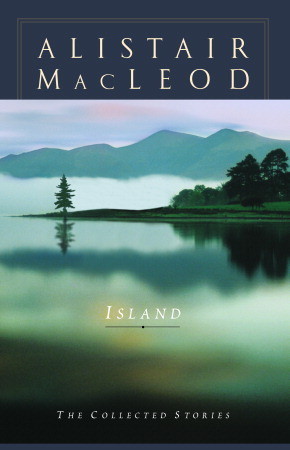The Golden Gift of Grey is set in the midwestern United States – a far cry from the first two stories in this volume, both about small town fishing and mining families in Cape Breton. However, there are many similarities between this, The Boat, and The Vastness of the Dark, some of which are identified in Marcie’s review of The Golden Gift of Grey.
The story is about 18-year-old Jesse who gets drawn into the whole-different-world of a pool hall.
Over everything and all of them the odour hung and covered and pressed like the roof of a gigantic invisible tent from which there could be no escape. It smelled of work clothes, soaked and dried in sweat and seldom washed, and of spilled beer and of the sour rags used to mop it up, and of the damp and decaying wood that lay beneath the floor, and of the reek that issued forth from the constantly swinging doors of the men’s washroom…
Each night he watches the men play pool until he is offered a turn to play himself. After that, nothing can stop him – not even his little brother at the door begging him to come home so his parents can stop worrying. Jesse imagines all will be well when he brings his winnings home to his parents.
The story is also about the complex relationship between Jesse and his parents. There is love for his parents, but also shame. Both parents are “barely literate” and “looked upon ‘studyen’ and whatever it might entail with a deep respect not far removed from fear.”
Yet while they were sometimes angry and tried to be contemptuous of “book learnen” and people who were just “book smart” they encouraged both as much as they could, seeing there a light that had never visited their darkness, but realizing that even as they fanned the flame they were losing a grip on almost all they had of life. And feeling themselves as if washed by a flood down the side of a shale-covered Kentucky mountain, clutching grasping at twigs and roots with their hopeful fingers bloodied raw.
And when their parents’ music could be heard through the windows of their house, it “branded their parents indelibly as hillbillies and they themselves as well, as extensions of those parents.”
But when Jesse was on his way home with his pocket full of money (“the first worthwhile gift that he would give to those from whom he had always taken”), he was “filled with a great love for the strange people that were his parents” and he was “ashamed now of the times he had been ashamed of them.” And when he arrived home and heard about how worried they had been about him, he “filled with love because of their concern.”
And they would all squirm and his mother would dry glasses that were already dry, and Mary and Donny would glance furtively at one another, while the heavy-set man, now fully awake and puffing on his pipe, would walk from one window to the next, shielding his eyes against the glass while trying to catch a glimpse of his eldest son approaching beneath the street lights. He would walk ceaselessly back and forth with the long, loping outdoor stride which he had brought to the northern Indiana city from eastern Kentucky and which he could not or would not change and he would mutter: “Where is that fella?” or more strongly, “Where’n hell’s that boy at and it goen on past twelve midnight?” And his wife would watch too, as intently but secretly, so that her husband would not see and become more agitated because of her awareness.
This last passage shows, beneath the concern for Jesse, the fear in the house garnered by the violent potential of the father, pacing and muttering. “He thought then of the awful violence that was within his father; a something that rumbled deep below like some subterranean mountain stream of roaring white water, splashing and pounding dark rocks within deep unseen caves.” And his wife, like so many wives before her (and after), trying to hold in her own emotions so as not to make her husband’s worse. This is something new; something I don’t remember seeing in the first two stories. I wonder if we will see it again.
This post is part of Buried in Print’s short story project for which she plans to re-read all of Alistair MacLeod’s short stories.
In case you missed it: My thoughts on The Boat and The Vastness of the Dark.




There’s a universality about the theme of a young person moving away from their parents, both physically and intellectually, which is very appealing in its poignancy. Those covers are wonderfully atmospheric!
True! Your comment makes me wonder how many ways MacLeod might try to tackle that theme in these stories…
This sounds different and yet similar to MacLeod’s work that I’ve read. There’s a tone and feel to the theme here and the quotes you have that definitely fits with what I know of him.
That’s how I felt, too. Same writing style, yet there was something different about this story from the others I’ve read so far…
He certainly nailed he smell of that pool hall🤢 I plan on checking more of his work out now. You always have such intriguing suggestions Naomi. Be well ❤️
Thanks, Donna! You won’t be disappointed!
This sounds like it captures a lot of the mixed emotions about moving into adulthood and leaving your family behind, but still feeling a pull, without being cliched. It sounds carefully done, and beautiful imagery as always!
Always beautiful imagery. Despite the fact that much of the story took place in the pool hall!
I’m enjoying following the McLeod project. All those families with hard men. I grew up amongst gentle men largely and the middle classes where men dominated with sarcasm (me too sadly), but I knew those men, had a girlfriend who later conspired with her mother to kill the father with an axe, and was found to be justified. It was my parents’ generation, and especially the farmers, who knew the value of getting educated and getting out, and were often sad that they hadn’t.
I’m glad to hear you’re enjoying it!
Your comment makes me think about how people are starting to come back to farming (small farms that sell at the Farmers Markets). Are they romanticizing it? Or are they doing it smarter, so it doesn’t feel like such a dead end? Have you been seeing the trend in Australia as well?
Australian farms are still growing larger and more corporate. I guess though tree changers are moving out of the cities onto small holdings, but are they doing any actual farming?
Do you have many local farmers markets?
Hi Naomi! I’ve just been popping over your blog a bit, reading about Alistair Macleod’s short stories. Although I’ve tended to avoid short stories in the past (or, at least, to put them well behind novels), I’ve noticed that in the last year or so I’ve very gradually begun to read more and more of them. Of course, it helps that there are so many great collections to choose from!
I am, sad to say, totally unfamiliar with Macleod, who sounds like a master of the form. I’ll definitely have to check out his work!
I had the same experience with short stories – I pushed them aside in favour of long fiction. But the last few years I have been loving them. Our reading preferences must change like our taste buds!
I hope you’re able to find his stories – they’re wonderful!
I love Alistair MacLeod’s writing. My favourite story of his has to be “In The Fall” from the anthology “Island”. Alistair MacLeod’s fiction stresses the importance of tradition and memory. Things we all need reminding of in this stressful modern world.
In the Fall is SO sad! I love it anyway, though. 🙂
There is a lovely rhythm to these passages you’ve shared even when they’re about not lovely things. I keep meaning to read Alistair MacLeod – one day!
That’s exactly it, Laila – there’s a rhythm to his writing! That must be what gets us through the woefully sad parts. 🙂
I loved those passages you included, such a lovely writer he is! And this shows my ignorance of him as well, I just assumed all his books took place in Canada on the east coast! LOL I’m a bit shocked to see that he’s written a story that takes place in the U.S.!
I was surprised by the setting, too. It’s the first one I’ve read not set–in some part–in Cape Breton. I wonder if there will be more…
Love the passages you’ve quoted here! (I’ve added a link to your post on the project page too.) There are so many layers to the family members’ lives in this story; even though it’s not one of my favourites (and I had largely forgotten it, by virtue of having muddled it with the previous two stories), I feel like I could reread it many times and still find new details to obsess about. Now I can’t remember, when I first read the story, did I think that the younger brother waiting in the poolhall was waiting because family was concerned about the older boy’s wellbeing or did I always have the sense of danger hovering nearby (about the father’s anger and temper etc.) so that the worry is changed into fear for every else other than the father.
Thanks for adding a link to my review! 🙂
My feeling through the whole thing was that everyone else’s worry was heightened by the danger of the father’s worry turning into something more aggressive. That the younger boy wants his brother to come home so they can all take a sigh of relief. There was so much tension at home.